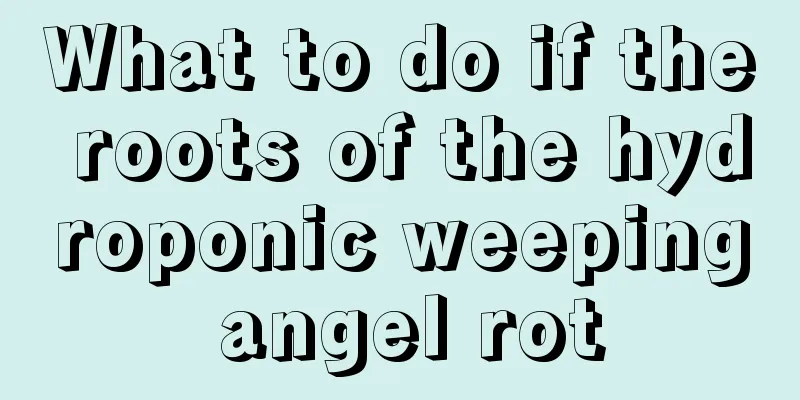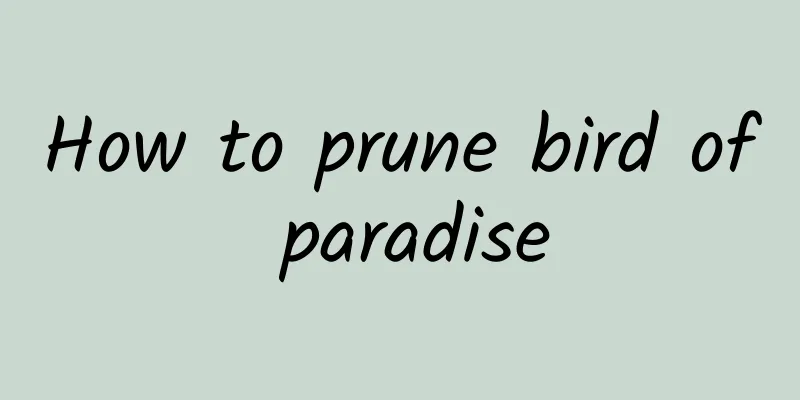What to do if the leaves of the peace lily wilt

1. Insufficient lightIf the plant does not see light for a long time, many energy conversions cannot be completed, which will cause the plant to lose its green color. Over time, the leaves of the plant will wilt and turn yellow, and in severe cases may even fall off. Solution: Provide additional light at the right time, but also pay attention to shade! If the plant has begun to wilt, it is recommended that you do not expose it to strong light all at once. Instead, you can expose it to scattered light first, and the plant will recover naturally. 2. Caused by unreasonable wateringExcessive watering is likely to cause water accumulation. At this time, the roots of the plant will have difficulty breathing, nutrients and water cannot be transported normally, and the leaves of the plant will naturally become listless. On the contrary, if the plant is short of water for a long time, it will not be able to absorb enough water, which will cause its leaves to become wilted. Solution: Water scientifically and appropriately. The amount of water should be determined according to the size of the potting soil and the degree of dryness and wetness. Also, when watering, pay attention to the water temperature. It is best if the water temperature is equivalent to the room temperature. 3. The air is too dryIf the air nearby is too dry, the plants will also be affected to a certain extent, such as yellowing and shriveling of leaves. Solution: There are two ways to alleviate dry air. One is to spray water on the leaves of the plant at the right time to increase the humidity of the surrounding air. Another way is to place a basin of clean water around the flower pot, which can also alleviate the dryness in time. 4. Caused by pests and diseasesThis situation is also quite common. For example, some common pests, such as red spiders and scale insects, are best cleaned up in time once they are discovered. When faced with the emergence of some diseases, it is necessary to spray pesticides in time to control them. In addition, it should be noted that the occurrence of diseases and insect pests is often related to the cleanliness of the potting soil. The potting soil should be cleaned in time to reduce the occurrence of diseases and insect pests. |
<<: What to do if lavender leaves wilt
>>: What to do if the leaves of Amaryllis fall over
Recommend
Podocarpus cutting time and method
Podocarpus cutting time The best time for Podocar...
Is the crabapple flower poisonous?
Begonia flowers are slightly poisonous Some varie...
What is the symbolic meaning of plum blossoms?
1. Auspicious Since ancient times, my country has...
What does the Begonia flower mean?
mild Begonia is a plant with a long cultivation h...
How to care for the Red Heart Mage Succulent and how to grow it well? How to grow the Mage Succulent
The biggest feature of the Red Heart Mage is that...
Is the thousand-year-old wood the same as the dragon blood tree?
In terms of types First of all, they are of diffe...
How often should you water your apple tree? What is the best time and method to water your apple tree?
Apple trees are very water-loving fruit trees, so...
Anyone who has waste bottles, please give them to me! Use it to grow flowers, and the green radish will grow into a "green leaf column"
Today Huahua is going to introduce another little...
How to trim the lucky charm
When to trim the lucky tree It is suitable to pru...
How to grow sunflowers? What are the taboos of growing sunflowers at home?
1. How to plant sunflower When planting sunflower...
How to cultivate water grass green chrysanthemum
Growth conditions of waterweed green chrysanthemu...
Cultivation methods and precautions of Abies odorifera
Plant characteristics We can also conclude from t...
Cultivation methods and precautions of Diamond Emerald Chlorophytum
Diamond Emerald Chlorophytum is also called white...
The meaning and symbolism of peony flowers
1. Overall Implication It means luxury, perfectio...
When do winter bamboo shoots begin to grow and be harvested?
In which month are winter bamboo shoots usually a...









